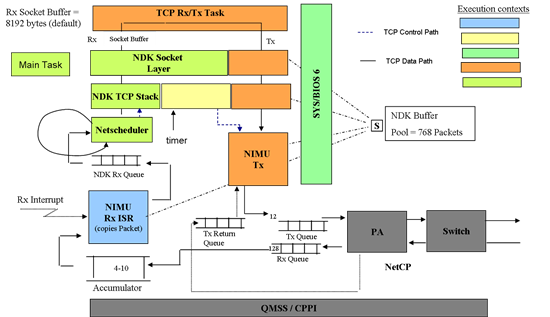Dear All:
I am testing the evm6678l board eithernet speed.
I copy the demo in mcsdk "hello world" demo in location "c:\program files\Texas Instruments\mcsdk_2_00_01_12\examples\ndk\helloWorld".
this demo contains a udp server.
I modified the demo to a tcp socket server so that I could send data to another machine constinually.
However, the client machine received data only around 10 M-Bytes/s, which means there is only 100M-b/s eithernet.
The cable is connect directly from 6678evm board to the client PC. the PC indicates the connection is a 1G connection.
I tried with another PC that the client program can run on 600M-bit/s so the client is not the reason.
So I think there may be some reason the 6678 could only run on a 100 M-bit/s mode ?


